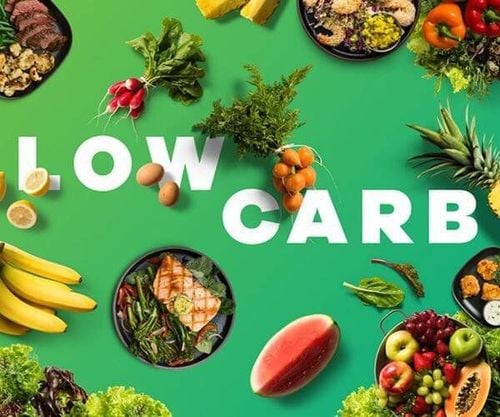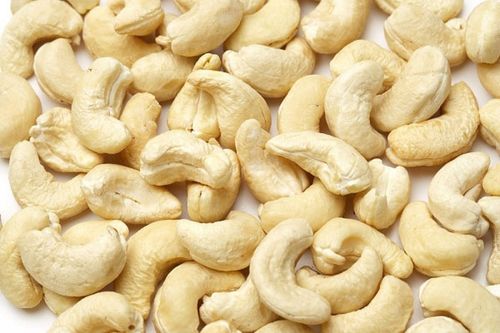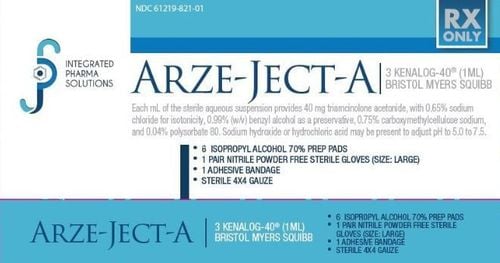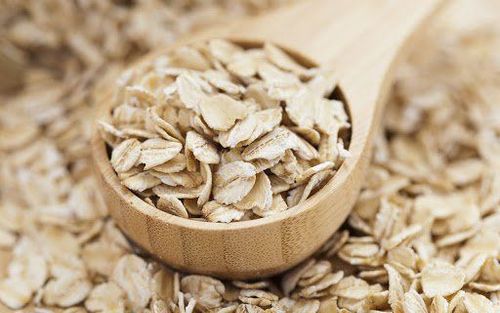This is an automatically translated article.
Cereals are an extremely popular breakfast food. It's easy and convenient for those who live busy lifestyles, but is often loaded with added sugar and other unhealthy ingredients. Additionally, cereals can be easy to overeat because many brands lack fiber and protein, which are essential to promoting fullness.
1.Oats Oats are a nutritious whole grain. They are usually rolled or crushed and then used as oatmeal, or porridge. Oats are whole grains, rich in fiber and important nutrients.
One cup of oats (117 grams) provides 4 grams of fiber and provides 68% of the daily requirement for manganese, 18% for phosphorus and selenium ,16% for zinc. It also provides significant amounts of B vitamins, iron and magnesium.
Oats are often prepared, but it is best to make and use them yourself. Because the oats you buy at home often contain a lot of sugar and other unhealthy ingredients.
Oatmeal is very versatile and can be prepared in many different ways. It is usually boiled with water or milk and then topped with fresh fruit, cinnamon or nuts. You can also soak oats in milk or yogurt for a few hours to enjoy in the morning.
2. Homemade Muesli Muesli is a very healthy and delicious cereal. It is often combined with oats, nuts and dried fruit. Muesli is usually taken in its raw form.
Also, it is usually used without any added oils or sweeteners. The combination of whole grains, nuts, and seeds makes muesli a great source of protein.
It also contains a lot of fiber, vitamins and minerals. You can lower the carb content of muesli dramatically by creating a nut-free version to enjoy.
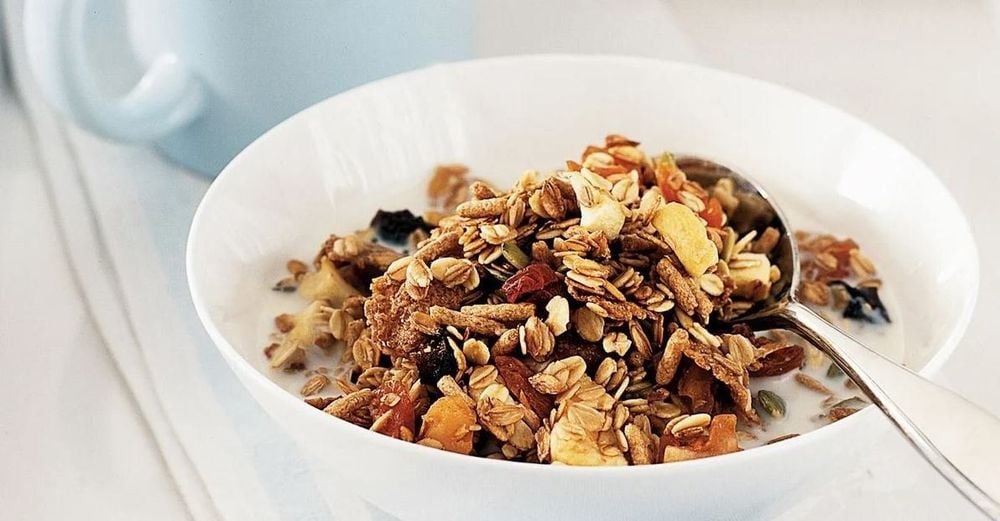
Muesli tự làm được kết hợp giữa các loại ngũ cốc và trái cây khô với nhau
3. Homemade granola Homemade granola is also a very healthy grain option. It is usually made by baking a combination of oats, nuts, and dried fruit in the oven until it becomes crispy. Most types of granola contain a good amount of protein and healthy fats. Additionally, it provides several vitamins and minerals, including phosphorus, magnesium, manganese, and B vitamins.
Despite its high nutrient content, ready-made granola is often fortified with added sugar, which is why why it's best to do it yourself. Remember that granola is quite high in calories. One cup of granola (122 grams) provides nearly 600 calories, so you should eat it in moderation. To keep your granola intake under control, divide your servings by about 1/4 cup (85 grams)
4. Homemade cinnamon-flavored cereals There are a number of flavored cereals available in the market. Cinnamon is considered quite palatable. Like other commercially available cereals, they are high in sugar. But you can still enjoy them by creating your own healthy version using flaxseeds, hemp seeds, cinnamon, apple juice, and coconut oil.
One serving of this cereal provides about 5 grams of protein and is much lower in carbs than many store-bought cereals. For example, one serving of store-bought cinnamon cereal contains 25 grams of carbs, while a serving of the homemade recipe contains only 3 grams.
5. Kashi 7 Whole Grain Nuggets 7 Whole Grain Kashi Nuggets are low in sugar and high in nutrients. It's made with 7 different whole grains, including oats, wheat, rye, barley, buckwheat, and triticale. All of this makes Kashi 7 Whole Grain Nuggets high in fiber, about 7 grams per 1/2 cup (170 grams).
Half a cup of Kashi 7 Whole Grain (170 grams) also provides 7 grams of protein, plus it provides a good amount of magnesium, zinc, potassium and B vitamins. Whole grain Kashi 7 Nuggets are much lower in sugar than that. other Kashi cereals. For example, one serving provides only 2 grams of sugar compared to Kashi GoLean Crunch, which contains 13 grams of sugar per serving.

Yến mạch là một trong 7 nguyên liệu hạt của cốm Kashi 7
6. Grape Seeds Grape seeds are one of the healthiest whole grains. They don't contain any added sugars and are made with just four simple ingredients: whole wheat flour, malt powder, salt, and dry yeast. In addition, in half a cup (170 grams), it provides 7 grams of fiber, as well as a variety of nutrients, including iron, B vitamins, zinc, magnesium and copper. You can also replace grape seeds with almonds and coconut flour instead of flour.
7. Bob's Red Mill Paleo-Muesli Style Bob's Red Mill Paleo-Muesli Style is a cereal that is not only healthy but also gluten-free. It's not like traditional muesli, it's completely seedless and is substituted with coconut, dried fruit. A quarter cup (24 grams) provides 16% of your daily fiber needs and 3 grams of protein. It also contains a few important minerals, including iron and calcium.
8. Sprouted Grains Ezekiel 4:9 Sprouted Grains Ezekiel 4:9 Sprouted Grains are sprouted grains. Sprouted grains aid digestion and contain higher levels of nutrients than ungerminated grains.
These grains are high in fiber and protein and don't have any added sugars. A half-cup serving (57 grams) provides 23% of your daily fiber and 8 grams of protein. Furthermore, Ezekiel 4:9 sprouted grain cereal provides a moderate amount of potassium, which is important for heart health
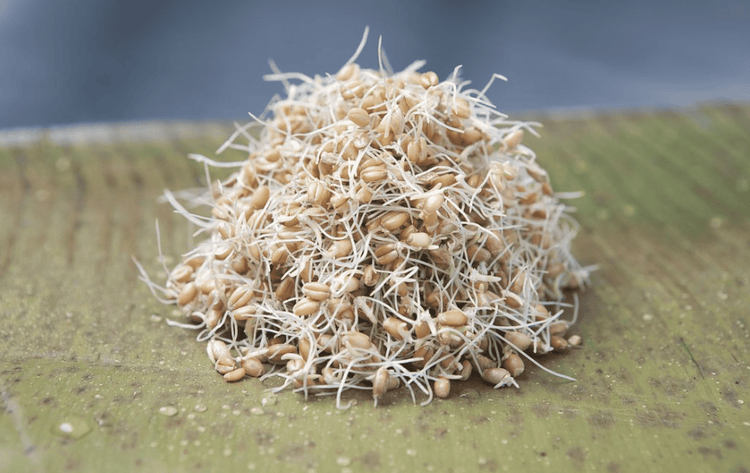
Ngũ cốc hạt nảy mầm Ezekiel 4:9 chứa hàm lượng dinh dưỡng cao
9. Path Organics Natural Grains Path Organics Natural Grains are full of healthy ingredients. They are a combination of chia, buckwheat, and hemp seeds, all of which are packed with protein and fiber. In addition, chia seeds are rich in omega-3 fatty acids, which may help reduce inflammation and promote brain health. What's more, the original cinnamon and apple flavor doesn't contain any added sugars and provides 6% of your daily potassium needs.
10. Barbara Wheat Cereal Barbara wheat stands out from other grains in that it has a single ingredient that is made from 100% whole wheat. The wheat is chopped in the form of cookies that you can crush and eat with milk.
It also has no added sugar, which is a rarity among commercially available cereals. Barbara Flour provides 20% fiber and 5% potassium of your daily needs.
11. Arrowhead Mills Cereals This is also a good and popular cereal option. They are made with just a few simple organic ingredients and don't contain any added refined sugars. It provides 4 grams of protein per serving in addition to some fiber, vitamin C, phosphorus, B vitamins, and iron.
12. Cauliflower Oatmeal Cauliflower "oatmeal" is made by combining mashed cauliflower with eggs, then adding the mixture according to your own recipe. This is a great way to cut carbs while still enjoying the delicious taste and texture of regular oatmeal.
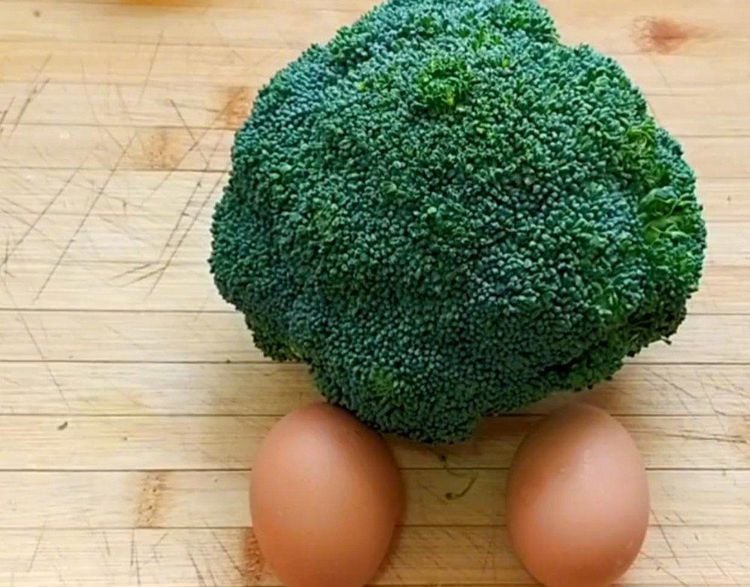
Súp lơ và trứng được nghiền với nhau kết hợp với bột yến mạch theo công thức của riêng bạn
One cup of cereal (81 grams) of regular oatmeal contains more than 11 times the amount of carbs found in one cup of cauliflower. In addition, cauliflower is rich in important nutrients as well as fiber and antioxidants.
13. Homemade Peanut Butter Homemade peanut butter muffins are a healthy alternative to store-bought cereals. It is prepared by taking almond flour, peanut butter, cocoa powder, coconut oil and a few other ingredients, rolling it into small balls and then baking them in the oven.
This alternative to store-bought peanut butter puffs is a great way to cut down on sugar. Additionally, using almond flour instead of wheat flour is an effective way to reduce the carb content of your cereal. Furthermore, peanut butter provides a good source of protein, healthy fats, and several other vitamins and minerals. However, you must balance the amount of grains you will eat because almond flour is quite high in calories at 160 calories per ounce. 1/4 to 1/2 cup is the right amount for you.
14. Love Grown Original Power O's Cereal This is a cereal packed with nutrients. They contain only a few ingredients, including brown rice and garbanzo beans, and have no added sugar. Additionally, it provides fiber, protein, along with some vitamin C, iron, and calcium.
15. Homemade flaxseed cereal You can absolutely make your own healthy cereal from flaxseeds and chia seeds. Your job only combines flax meal, chia seeds, and coconut oil as well as cinnamon and a sweetener. Then cut into squares and bake. Flax and chia seeds contain omega-3 fatty acids and protein. In addition, they provide a significant amount of nutrients, including magnesium, phosphorus, and manganese.
Many people have the habit of eating cereal for breakfast. However, processed grains are often made from refined grains and are high in sugar, which is unhealthy. Therefore we should avoid.
However, there are many healthy cereal options on the market that are both nutritious, packed with fiber and protein without the added sugar. It's important that you read the ingredients carefully before buying a cereal to make sure it's a healthy choice. Making your own cereal is also a great way to increase the nutritional content and avoid unhealthy ingredients.
Customers can directly go to Vinmec Health system nationwide to visit or contact the hotline here for support.
Articles refer to the source: healthline.com




